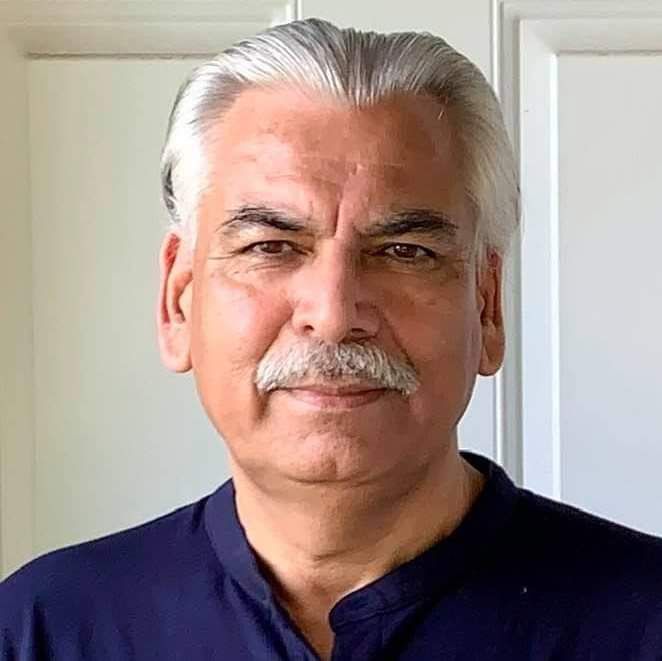By Barrister Usman Ali, Ph.D.
“This is a system of oppression and tyranny. There is no Constitution left in this country, no rule of law. Courts have failed to protect citizens. All boundaries have been crossed. We will raise our voice against this fascist government on every forum. We will not be cowed by your tactics. We will push our movement forward, and this dark night of injustice will soon end.”
These words are not new. They echo through Pakistan’s political history. Every party that loses power repeats the same lament, along with a familiar warning: “Those in power should inflict only as much injustice as they can bear tomorrow.” These are not mere outbursts. They reflect a bitter reality: politics in Pakistan is rarely about governance or service, it is a relentless game of power and revenge. A game that has continued for 78 years, and each round has grown more toxic than the last.
At independence, the dream was rule of law and constitutional supremacy. That dream shattered within a decade. In 1958, General Ayub Khan imposed Pakistan’s first martial law and declared: “Democracy is against the temperament of this country.” Opponents faced trials, politicians were disqualified, and power shifted from parliament to the barracks. Then came Yahya Khan and the blood-soaked tragedy of East Pakistan, proof that this game was deadlier than anyone imagined. General Zia-ul-Haq dressed his coup in the slogan of “system reform,” but his era brought public lashings, mass imprisonments, and the judicial hanging of Zulfikar Ali Bhutto, a stark reminder that in the war for power, principles have no weight. The darkest irony? When these dictators left, no elected government dared hold them accountable. No trials. No punishments. This is the system’s biggest failure: politicians tore each other apart while the original architects of this vicious cycle stayed untouchable.
In 1988, democracy returned, at least in name. The people hoped the revenge politics would end. It didn’t. Benazir Bhutto and Nawaz Sharif spent years trying to brand each other as corrupt and traitors. Allegations, arrests, and disqualifications became routine. Both parties repeatedly sought blessings from the establishment. Democracy became a hollow slogan; lust for office remained the true agenda. Then came 1999. General Pervez Musharraf seized power, promising accountability. Nawaz Sharif was exiled; Benazir faced relentless cases abroad. When democracy limped back in 2008, hopes rose again, only to collapse. The PPP government faced constant attempts to topple it. And when Nawaz Sharif returned, the streets erupted with sit-ins and protests, fueled by Imran Khan’s ambition and the blessings of the generals.
By 2018, the playbook was perfected. Generals, judges, and segments of the media worked as silent partners in a rigged election. Imran Khan stormed into power, declaring: “I will spare no one.” And he didn’t. The National Accountability Bureau and FIA became political weapons. Media trials became the norm. Nawaz Sharif was disqualified, his daughter jailed; his brothers dragged through cases. Old files were reopened against Asif Zardari; his sister humiliated. Even a death-penalty narcotics case was fabricated against Rana Sanaullah. Imran Khan proudly claimed: “For the first time in Pakistan’s history, a powerful man has been brought under the law, this is true rule of law.” But power is a slippery carpet. When it slipped away, Imran Khan cried out: “There is no Constitution, no rule of law in this country!” This is poetic justice in its rawest form. The man who weaponized law yesterday now laments its abuse today.
In 78 years, Pakistan has witnessed four direct military coups, multiple soft interventions, and 18 prime ministers dismissed before completing their terms. Not a single prime minister has ever served a full constitutional term. Political instability has crippled the economy, costing billions in lost investment and growth, while institutions have been hollowed out and personalities have become larger than the law. Votes are taken in democracy’s name, but democratic values are trampled again and again. Today’s rulers are tomorrow’s prisoners, chanting the same old line: “There is no law in this country.” When in power, the law lies under their boots; when power is gone, it becomes their last hope. This is the unchanging manual of Pakistani politics. What happened before was wrong; what is happening now is equally wrong. The fault is collective, and the nation pays the price. As the saying goes: you reap what you sow.
When will this vicious cycle end? The solution is clear, but courage is lacking. Institutions must be freed from political interference. The law must apply equally, whether to a prime minister or a peon. Political parties must stop seeking blessings behind khaki curtains and start talking to each other. None of them are saints. They must bury their bitter past and move forward. The Charter of Democracy cannot remain ink on paper, it must become lived reality. Otherwise, history will keep writing the same bitter truth: Pakistan had no rule of law yesterday, has none today, and may never have any tomorrow. Power is temporary; principles are eternal. If this mindset does not change, the wheel of vengeance will keep spinning, and the cost will always fall on the people. The moment of decision is now, or else the coming years will echo with the same cries, the same cases, and the same hollow promises.

